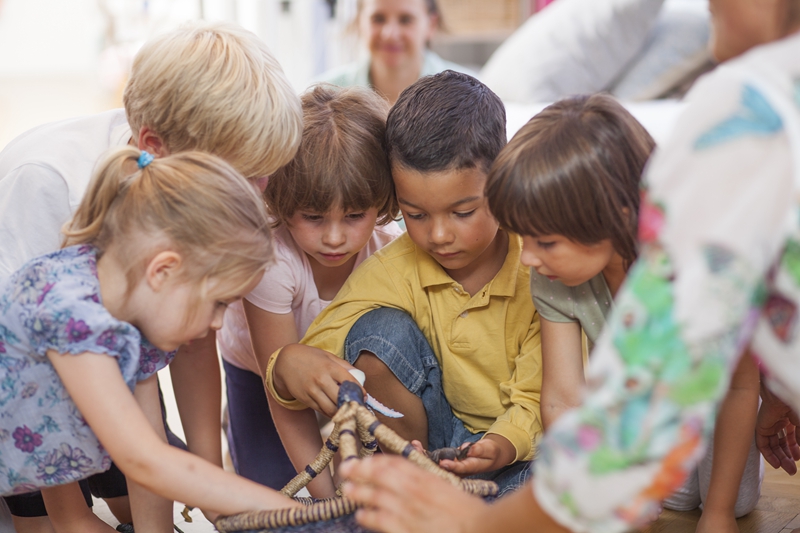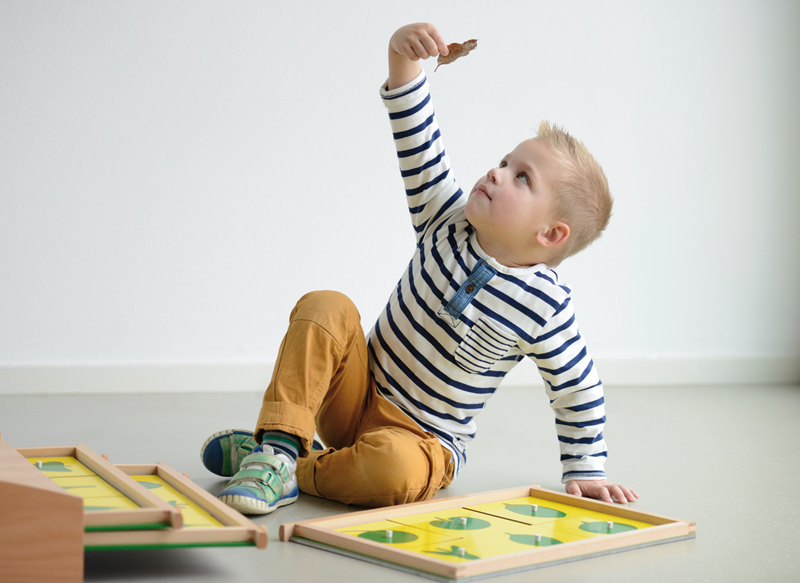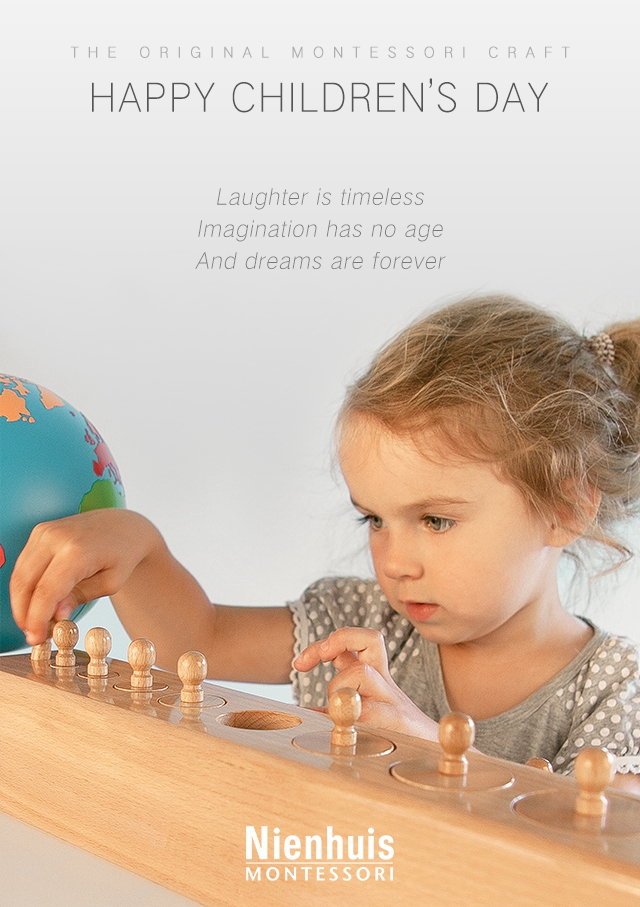How to make children happy—the Montessori way
In Dr. Montessori’s Own Handbook, Maria Montessori observed that children in her schools had a certain calmness and quiet joy. She concluded that this positive change in children’s disposition resulted from two things: organization of work and freedom.
Organization of work
A prepared environment is a hallmark of Montessori education. Maria Montessori believed that classroom environment should be carefully designed to spark children’s curiosity and motivate their own inner interests, to help them find purposeful work.
Purposeful work provides a positive outlet for children’s energy and brings them a deep sense of satisfaction.
Montessori teachers can accept a controlled of errors—that is, the children themselves can see whether it has been done correctly so they don’t have to rely on teachers to correct them. In this way, child is working toward his own self-improvement, rather than to please teachers, which brings satisfaction and happiness.

Freedom
Maria Montessori believed that each child is a unique individual with his or her own style of learning. Children need to learn at their own pace and when stimulated properly, learn to spontaneously thrive in a positive environment because they are innately inquisitive, curious and creative.
Within the prepared environment, Montessori children have the freedom to choose their own work. They do not limit their all work to traditional ways. They engage freely with the work at length and with creativity as long as it is respectful. They have the freedom to move around the classroom and choose where to sit, but not to run through the classroom or trample on someone else’s work.
In addition to intellectual freedom, Maria Montessori wrote about the importance of generally avoiding interference in children’s affairs unless it was really necessary. She wrote, “We leave children free in their work, and in all actions which are not of a disturbing kind” (Dr. Montessori’s Own Handbook).
Without purposeful work from teachers, children no longer needed to rebel, and reached a state of happiness and improved character.
While freedom is essential to happiness, too much freedom, or limitless choices, can actually hinder happiness. Essentially, freedom within limits fosters happiness.

Make children happy at home
It’s very possible to incorporate these principles at home to help your child be happier! Try these things:
Invite him to help you make dinner or ask him to rake the leaves in the yard. Work brings satisfaction and a positive sense of self.Before you tell your child not to do something or interfere in an argument he’s having, ask if it’s really necessary, or if you can give him the freedom to work through it on his own.
Reference:
https://www.mother.ly/child/the-montessori-guide-to-happy-kids




![[sort:parentname]](/static/upload/image/20200303/1583213707546914.jpg)
![[sort:parentname]](/static/upload/image/20200303/1583213768825649.jpg)
